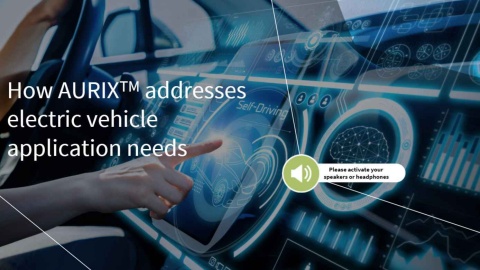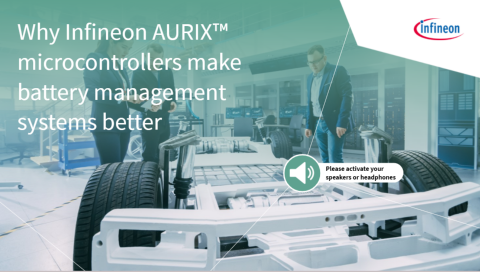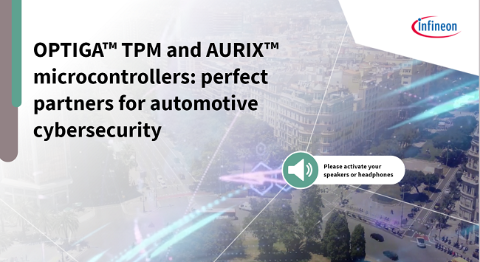Fuel-cell control unit (FCCU)
Enabling efficient and reliable fuel-cell control systems
The fuel-cell control unit (FCCU) manages hydrogen and air processing, thermal and water management, energy conversion, and ensures compliance with safety requirements. Infineon provides a comprehensive range of solutions, empowering designers to prioritize efficiency, performance, and reliability while minimizing costs in fuel-cell subsystem designs.
Fuel-cell control unit (FCCU) for optimal efficiency and reliability
The fuel-cell control unit (FCCU) holds significant importance within fuel-cell electric vehicle drivetrain subsystems as it is responsible for the overall process control of the entire fuel-cell system. Its responsibilities encompass supervising hydrogen and air processing, thermal and water management, energy conversion, and ensuring compliance with safety and security requirements. A close collaboration between the fuel-cell controller and the powertrain domain controller is crucial to continuously meet the load and thermal requirements.
Designers of fuel-cell subsystems, including the FCCU, must prioritize balancing efficiency, performance, reliability, and cost-effectiveness. Infineon offers a comprehensive system portfolio including microcontrollers providing functional safety support up to ASIL-D as well as the new thermal conductivity gas sensors TCIx family to support designers in integration and homologation of the challenges for hydrogen-powered vehicles.
- High-performance processing units
- High product compatibility
- Evaluation kits available
- Easy customization
- Fast time to market
- Enhanced system safety
Wide portfolio of solutions with high degree of compatibility
With our portfolio of AURIX™, we can deliver high-performance processing units that meet the system requirements of electric vehicle fuel-cell control units. As the FCCU is responsible for the overall process control of the fuel-cell system, it is highly important that safety and security requirements are met.
Infineon's 32-bit MCUs for automotive fuel-cell control unit design provide functional safety support up to ASIL-D, as well as protection against manipulation and cyber attacks, and are ideal for automotive applications where a combination of security and safety functions are required. The product family can be used in combination with OPTIREG™ safety supplies, pressure and concentration sensors, as well as with fuel-cell supervision ICs to ensure further safety assurance. The system can be extended by Infineon's OPTIGA™ TPM and F-RAM if required.
Infineon's AURIX™ second-generation microcontrollers also allow for easy customization and fast time to market by enabling engineers to choose from a wide range of memories, peripheral sets, frequencies, temperatures, and packaging options, all with a high degree of compatibility across multiple generations.
Advanced control units for fuel-cell electric vehicle drivetrains
- Infineon's AURIX™ microcontrollers can be paired with OPTIREG™ PMIC solutions to ensure that fuel-cell controller safety and security requirements are met.
- New thermal conductivity gas sensors TCIx family to prevent leakage or maldistribution of flow and define appropriate shutdown strategy
- Infineon's global preferred design house partner network can accompany your designs from conception to the verification phase
- Evaluation Kits are available to shorten the system development time

Training topics:
- Get to know how AURIXTM is able to answer the needs of the electric vehicle market
- Recognize and explore how AURIX™ TC3xx addresses key electric vehicle challenges, and understand the main features of the AURIX™ TC3xx microcontroller

In this training you will:
- Understand what a battery management system is
- Recognize the main advantages that Infineon AURIX™ microcontrollers can bring to these systems

Getting the most out of batteries. By the end of this decade, the majority of new cars sold around the world is expected to have a partially or fully electric drivetrain. Battery management systems have a great impact on the range, cost and service life of electric vehicles, which makes them a key success factor for this mobility revolution. Furthermore, they play an essential role when it comes to second-life concepts that allow former EV batteries to be used as flexible storage for renewable energy, for example. Dr. Clemens Mueller exclusively explains in-depth market trends and challenges, provides details on Infineon products and solutions, and introduces the new BMS-IC TLE9012AQU.

Description:
- Identify common security threats to modern cars
- Understand how OPTIGA™ TPM can help automotive systems achieve a high level of security and their applications in different use cases in various host environments
Webinar
To fully exploit the potential of hydrogen, solutions must be found to the challenges of production, storage, transport and use. Learn how the different systems are structured and how they work together. Gain insights into different production and consumption applications and learn about Infineon's best-in-class semiconductor solutions.



